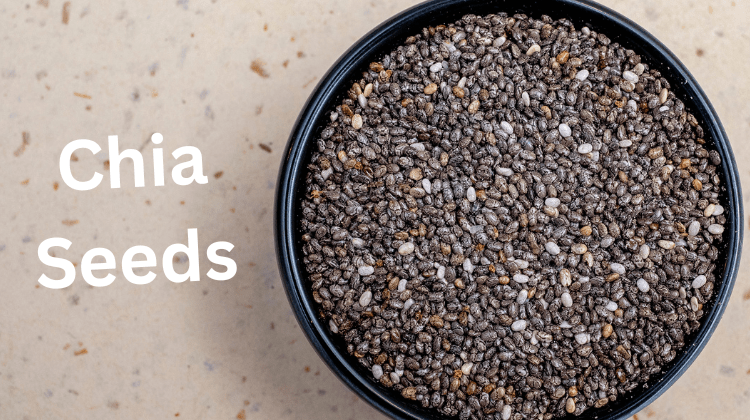Flax seeds are everywhere these days — sprinkled over smoothie bowls, blended into protein shakes, and baked into healthy snacks. But beyond the trend, there’s a serious question: can these tiny seeds actually support heart health by lowering cholesterol?
The connection between flax seeds and cholesterol has caught the attention of both nutrition enthusiasts and medical researchers. Rich in omega-3 fatty acids, fiber, and powerful antioxidants, flax seeds pack more benefits than you’d expect from something so small.
In this article, we’ll break down what the science says about flax seeds and cholesterol, explore how they work in the body, and share practical tips for including them in your daily routine.
Why Cholesterol Control Is So Important
Cholesterol often gets a bad reputation, but the truth is — your body needs cholesterol to build healthy cells and produce hormones. The problem starts when there’s too much of the wrong type.
LDL vs. HDL: Understanding the Difference
- LDL (Low-Density Lipoprotein) is often referred to as “bad” cholesterol. When LDL levels rise, this cholesterol can build up on artery walls, forming plaque that narrows and hardens the arteries — a condition known as atherosclerosis.
- HDL (High-Density Lipoprotein) is known as “good” cholesterol because it helps remove excess LDL from the bloodstream, carrying it to the liver where it can be broken down and excreted.
Maintaining a healthy balance between LDL and HDL is key to preventing heart problems.
The Hidden Dangers of High Cholesterol
When cholesterol levels spiral out of control, the risks are serious:
- Heart Disease – High LDL can restrict blood flow, increasing the risk of heart attacks.
- Stroke – Blocked arteries can also lead to reduced blood supply to the brain, causing a stroke.
- Peripheral Artery Disease (PAD) – Poor circulation in limbs due to clogged arteries.
These risks often build silently over time, which is why managing cholesterol early — even if you feel fine — is so important.
Diet and Lifestyle: The First Line of Defense
The good news? Cholesterol levels are highly influenced by what you eat and how you live. Making small, consistent changes can lead to big health improvements:
- Choosing heart-healthy fats (like those in flax seeds, olive oil, and nuts)
- Increasing fiber intake
- Limiting processed foods and added sugars
- Staying physically active
- Managing stress
For many people, natural strategies can help maintain healthy cholesterol levels without the need for medication — or at least reduce dependence on it. That’s where nutrient-dense foods like flax seeds come into the picture.
What Makes Flax Seeds Heart-Healthy?
Flax seeds may be small, but they’re packed with heart-friendly nutrients that work together to support cholesterol control and overall cardiovascular wellness. Their unique composition makes them more than just a trendy superfood — they’re a science-backed ally for heart health.
1. Omega-3 Fatty Acids (ALA)
Flax seeds are the richest plant-based source of alpha-linolenic acid (ALA), a type of omega-3 fatty acid known for its anti-inflammatory and cardioprotective effects.
- ALA helps reduce inflammation in the arteries.
- It may lower triglyceride levels, another key risk factor for heart disease.
- Studies suggest that ALA can also help prevent the buildup of plaque in the arteries, reducing the risk of atherosclerosis.
While most people associate omega-3s with fish oil, flax seeds offer a plant-based alternative that supports heart health naturally.
2. Soluble Fiber
Each tablespoon of ground flaxseed contains a healthy dose of soluble fiber, which plays a direct role in lowering LDL (bad) cholesterol.
- Soluble fiber binds to cholesterol in the digestive system.
- It prevents cholesterol from being absorbed into the bloodstream.
- This process helps to flush out excess cholesterol through waste, promoting a cleaner, healthier circulatory system.
Soluble fiber also supports digestive health and helps regulate blood sugar, making flax seeds beneficial on multiple fronts.
3. Lignans (Powerful Antioxidants)
Flax seeds are one of the best sources of lignans — a type of plant polyphenol with antioxidant and estrogen-balancing properties.
- Lignans may help inhibit cholesterol production in the liver.
- They reduce oxidative stress, which is linked to artery damage and heart disease.
- Research shows lignans can help improve blood pressure and offer hormonal support, particularly in women.
With up to 800 times more lignans than other plant foods, flax seeds stand out as a potent antioxidant source.
Nutrient Synergy: Why It Matters
What makes flax seeds especially powerful is how these nutrients work together:
- ALA reduces inflammation.
- Soluble fiber binds and removes excess cholesterol.
- Lignans fight oxidative stress and support healthy cholesterol metabolism.
This nutritional synergy creates a well-rounded approach to heart health — targeting not just cholesterol, but also the underlying factors like inflammation, oxidative damage, and hormonal imbalances.
How Flax Seeds Lower Cholesterol: Mechanisms Explained
Flax seeds don’t just support heart health on the surface — they go deeper by interacting with specific biological processes that affect how cholesterol is absorbed, processed, and eliminated by the body. Here’s a breakdown of how their key nutrients actually work:
Soluble Fiber and Bile Binding
One of the most well-researched components of flax seeds is their soluble fiber, which plays a direct role in reducing LDL (bad cholesterol).
- Soluble fiber binds to bile acids in the intestines. These bile acids are made from cholesterol, so when fiber helps remove them through waste, your liver has to use more cholesterol to produce new bile — effectively lowering cholesterol levels in the blood.
- This fiber also slows digestion, improving nutrient absorption and helping stabilize blood sugar, which indirectly supports heart health.
- Plus, it promotes gut regularity, reducing the risk of constipation and aiding overall digestive wellness — a bonus benefit when incorporating flax seeds into your diet.
Omega-3 Fats for Artery Health
Flax seeds are a rare plant-based source of alpha-linolenic acid (ALA), a type of omega-3 fatty acid with powerful cardiovascular benefits.
- ALA is known for its anti-inflammatory effects, which can help reduce the risk of plaque buildup in arteries — a key contributor to heart disease.
- These healthy fats may help lower triglyceride levels, especially when paired with other dietary changes.
- Some studies also suggest that ALA can improve arterial elasticity, reducing blood pressure and improving overall circulation.
By targeting inflammation and fat metabolism, ALA from flax seeds helps create a healthier environment for your heart and blood vessels.
Lignans and Antioxidants
Lignans are lesser-known but incredibly powerful compounds found in high concentrations in flax seeds. Their role in cholesterol management is twofold:
- They act as phytoestrogens and antioxidants, reducing oxidative stress — a major factor in heart disease and cholesterol imbalance.
- Lignans may inhibit the activity of certain liver enzymes responsible for producing cholesterol, which can help reduce total and LDL cholesterol levels over time.
- There’s also emerging evidence that lignans may block the absorption of cholesterol in the digestive tract, further amplifying the cholesterol-lowering effect.
Together, these antioxidant actions protect the arteries, support better lipid profiles, and promote long-term heart health.
Scientific Research on Flax Seeds and Cholesterol
The health claims around flax seeds aren’t just based on trends — they’re supported by solid scientific evidence. Multiple studies, clinical trials, and reviews have explored the impact of flax seed consumption on cholesterol levels, particularly in individuals with high LDL cholesterol or at risk of heart disease.
Meta-Analyses Confirm the Benefits
A comprehensive meta-analysis published in The American Journal of Clinical Nutrition reviewed 28 randomized controlled trials involving over 1,500 participants. The researchers found that flaxseed supplementation significantly reduced both total cholesterol and LDL (bad cholesterol) levels, with the most notable effects seen in people with elevated cholesterol or existing cardiovascular conditions.
📊 Key finding: “Flaxseed intake reduced LDL cholesterol by an average of 10 mmol/L, particularly in individuals with high baseline levels.” — (AJCN, 2009)
Another systematic review and meta-analysis in Nutrition found that daily consumption of 30 grams of ground flaxseed (around 2 tablespoons) resulted in an average LDL reduction of up to 15% over a 12-week period. These changes were comparable to results seen with some cholesterol-lowering medications — but without the side effects.
Clinical Trials Highlight Consistency
Clinical trials have shown consistent results across different demographics:
- A study published in the Canadian Journal of Cardiology reported that ALA from flaxseed supports heart health by reducing inflammation and improving arterial function.
- A randomized trial in the Journal of the American College of Nutrition found that flaxseed significantly improved LDL levels and blood pressure in people with high cholesterol.
- In another study on Japanese adults, flaxseed intake reduced total and LDL cholesterol without negatively affecting HDL, the “good” cholesterol.
Who Benefits the Most?
While flax seeds offer general heart benefits, the impact is especially strong in:
- Individuals with high baseline LDL cholesterol
- People with type 2 diabetes or metabolic syndrome
- Those at risk of cardiovascular disease
The research suggests that flaxseed works best as part of a long-term, consistent dietary strategy rather than a short-term fix.
How to Use Flax Seeds for Best Results
Adding flax seeds to your routine is simple — but using them the right way makes all the difference when it comes to reaping their cholesterol-lowering benefits. From the form you choose to how much you consume, every detail matters.
Whole vs. Ground Flax Seeds: Which Is Better?
If you’re tossing whole flax seeds into your smoothie or cereal, you might not be getting all the benefits.
Whole flax seeds often pass through the digestive system undigested, meaning your body misses out on their key nutrients like omega-3s, fiber, and lignans.
Ground flaxseed (also called flaxseed meal) is the better choice for nutrient absorption because:
It unlocks the seed’s inner nutrients, making it easier for your body to digest and utilize them.
Studies consistently use ground flaxseed in clinical trials showing cholesterol and heart health benefits.
You can buy it pre-ground or grind it yourself using a coffee or spice grinder.
💡 Tip: Store ground flaxseed in an airtight container in the fridge to keep it fresh and prevent oxidation.
Recommended Daily Amount
Research suggests that consuming 1 to 2 tablespoons of ground flaxseed per day is effective for supporting cholesterol control and overall heart health.
This amount provides a good dose of:
- Soluble fiber to help trap and eliminate cholesterol
- Alpha-linolenic acid (ALA) to fight inflammation
- Lignans for antioxidant support
Start with 1 tablespoon a day and increase gradually if needed — especially if you’re not used to high-fiber foods. And always drink plenty of water, as the fiber in flaxseed absorbs liquid and expands in the gut.
Easy Ways to Incorporate Flax Seeds in Your Diet
The mild, nutty flavor of flaxseed makes it easy to blend into everyday meals without affecting taste. Here are a few effortless ways to add it to your routine:
- Smoothies – Blend 1 tablespoon into your morning smoothie for a fiber and omega-3 boost.
- Oatmeal or porridge – Stir into warm oats just before serving.
- Yogurt bowls – Sprinkle on top of yogurt with fruit and nuts.
- Baking – Mix into muffin, pancake, or bread batter for added texture and nutrients.
- Soups and stews – Stir into thick soups or lentil curries for added fiber.
- Salads – Mix into salad dressings or sprinkle over leafy greens.
- Energy bites – Combine with dates, oats, and nut butter for quick, no-bake snacks.
🥄 Pro tip: Add flaxseed after cooking rather than during high-heat cooking to preserve its omega-3 content.
Tips for Maximum Cholesterol-Lowering Benefits
While flax seeds alone offer powerful support for heart health, combining them with other smart dietary and lifestyle choices can significantly amplify their cholesterol-lowering effects. Here’s how to get the most out of your flaxseed routine:
Pair Flax Seeds with Other Heart-Healthy Foods
Flax seeds work even better when added to a diet rich in other cholesterol-fighting foods. Here are a few that complement flaxseed’s benefits:
- Oats: Rich in beta-glucan, a type of soluble fiber that helps reduce LDL (“bad”) cholesterol. A flaxseed-oatmeal combo is a heart-healthy powerhouse.
- Nuts: Especially walnuts and almonds, which are high in unsaturated fats and plant sterols that support cholesterol reduction.
- Olive oil: A key part of the Mediterranean diet, olive oil is high in monounsaturated fats that help lower LDL while maintaining HDL (“good”) cholesterol.
- Beans and legumes: These fiber-rich foods work similarly to flaxseed in binding cholesterol in the gut.
- Fatty fish (like salmon or sardines): These provide EPA and DHA omega-3s, which support heart health in a different way than the ALA in flax seeds.
🥗 Tip: Create meals that combine several of these — like a salad with olive oil dressing, sprinkled with ground flaxseed and almonds.
Be Consistent Over Time
Flax seeds are not a quick fix. Their effects build up over weeks and months of consistent use. Clinical studies showing cholesterol reduction usually observe participants over 8 to 12 weeks.
To see results:
- Take flaxseed daily, not occasionally.
- Stick to the recommended amount (1–2 tablespoons of ground flaxseed).
- Make it a habit by adding it to meals you already enjoy.
Think of flax seeds as a long-term ally in your heart health journey — not a magic bullet.
Combine with an Overall Healthy Lifestyle
Even the best superfoods need a supportive environment to work effectively. To maximize the impact of flax seeds on cholesterol, integrate them into a heart-smart lifestyle:
- Eat a balanced diet: Focus on whole, unprocessed foods, rich in fiber, healthy fats, and lean proteins.
- Limit saturated fats: Cut back on red meat, fried foods, and processed snacks that raise LDL cholesterol.
- Exercise regularly: Aim for at least 150 minutes of moderate activity (like brisk walking) per week.
- Stay hydrated: Especially important when adding high-fiber foods like flaxseed.
- Quit smoking and reduce alcohol: These habits can hinder cholesterol management and heart health.
- Manage stress: Chronic stress can negatively affect heart health and lipid levels.
Final Thoughts
Flax seeds offer a simple yet powerful way to support heart health and manage cholesterol levels naturally. Backed by research, their rich combination of omega-3 fatty acids (ALA), soluble fiber, and lignans work together to improve lipid profiles, reduce inflammation, and protect against cardiovascular disease.
Incorporating just 1–2 tablespoons of ground flax seeds into your daily routine — whether in smoothies, oatmeal, salads, or baking — can lead to meaningful improvements over time. Like any health habit, consistency is key. Pairing flax seeds with other heart-healthy foods and a balanced lifestyle enhances their benefits even further.
FAQs About Flax Seeds and Cholesterol
How much flaxseed should I take daily to lower cholesterol?
Most studies recommend 1–2 tablespoons (7–14 grams) of ground flaxseed per day to help lower LDL (bad cholesterol) and improve overall lipid levels. Ground flaxseed is preferred because it’s easier to digest and absorb.
Are whole flax seeds effective for lowering cholesterol?
Not really. Whole flax seeds often pass through your digestive system undigested, meaning your body may not absorb the cholesterol-lowering nutrients like ALA, fiber, and lignans. Ground flaxseed is far more effective for health benefits.
How long does it take for flax seeds to reduce cholesterol?
Results vary, but noticeable improvements in cholesterol levels can occur in as little as 4 to 12 weeks when flaxseed is consumed daily as part of a balanced diet. Consistency and lifestyle factors play a key role.
Can flax seeds replace cholesterol medication?
Flax seeds can support cholesterol management but should not replace prescribed medication without your doctor’s approval. They can be used alongside lifestyle changes and medications for a more holistic approach to heart health.
Is flaxseed oil effective for cholesterol management?
Flaxseed oil is rich in ALA omega-3s, which can help reduce inflammation and lower triglycerides, but it lacks fiber and lignans — two key components in cholesterol reduction. For full benefits, whole ground flaxseed is a better choice.



